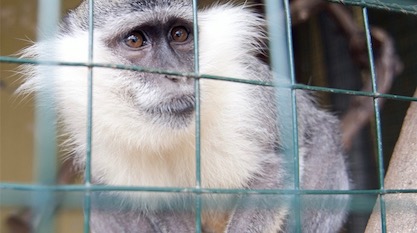 Culture & Ethics
Culture & Ethics
 Medicine
Medicine
Bioethicists Urge a Grotesque Abuse of Animals


Years ago the crassly utilitarian Joseph Fletcher — who has been called the “patriarch of bioethics” — swooned at the prospect of males giving birth. He wrote in his 1988 book The Ethics of Genetic Control:
[T]ransplant or replacement medicine foresees the day, after the automatic rejection of alien tissue is overcome, when a uterus can be implanted in a human male’s body — his abdomen has spaces — and gestation started by artificial fertilization and egg transfer.
Hypogonadism could be used to stimulate milk from the man’s rudimentary breasts — men too have mammary glands. If surgery could not construct a cervical canal the delivery could be effected by a Caesarean section and the male or transsexualized mother could nurse his own baby.
It was a classic “It will never happen” argument. Nobody took it seriously. But once again, we find that if radicals envision it, eventually we will try to go there.
Going There
Uterus transplants have been done in women, still an experimental surgery. Now, a just released article in the Journal of Medical Ethics supports “genetically XY women” — biological men who identify as women — also eventually receiving such transplants. (Women are called “genetically XX.” “UTx” means a uterine transplant.) From “Uterus Transplantation in Women who are Genetically XY”:
From a justice perspective, there is a moral imperative to ensure equitable access to UTx. In this case, arguments against providing UTx to genetically XY women for reasons unrelated to safety and efficacy should be assessed carefully to address potential discrimination against genetically XY women as a social group.
The article details the pronounced safety issues that the authors conclude should currently prevent attempting surgeries. But they want animal research conducted to learn how to make it safe:
Further research, beginning with animal models, is needed to determine whether UTx can be safe and effective in XY women…Until there is more research on the potential for UTx in individuals other than XX women, and considering the current state of knowledge in the field, it is premature to recommend the procedure to genetically XY women.
As safety and efficacy data accrue, justice will demand the availability of this option for XY women be revisited.
Absolutely not! How much pain should would that cause to the animal subjects? How many mutilations would be inflicted on them? How many deaths?
There Must Be Limits
At the very least, it would involve surgically transplanting uteruses into male bodies, requiring the animals to undergo the rigors of immune-suppressant drugs, and if uteruses could be maintained in a male body, attempting to implant embryos in these organs for gestation. Then, if gestation were ever maintained successfully, Caesarian births. Pursuing this research would be a grotesque abuse of the animals under our control, which would eventually require using larger subjects such as monkeys or dogs.
I believe very strongly in the “grim good” of animal research. But the purposes of such experiments should broadly support human wellbeing and the attaining of compelling health and scientific benefits or knowledge. Surely this goal, searching for a way to safely allow biological men who identify as women to gestate and give birth, is not any of that.
I have great empathy for people with gender dysphoria. We are turning society on its head — sometimes in ways I consider broadly destructive and inadvisable — to accommodate their anguished psychological states.
But there are limits. At some point, biology must be respected. From a basic animal welfare analysis, experimenting in a (probably vain) attempt to allow biological men to give birth would be immoral and unethical. It should not be allowed.
Photo credit: U.S. Air Force/Senior Airman Daniel Phelps.
Cross-posted at The Corner.
